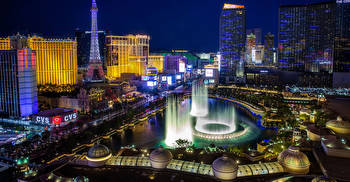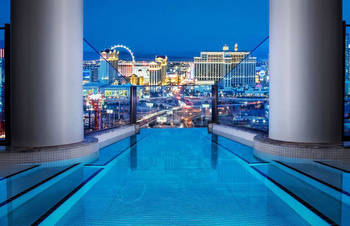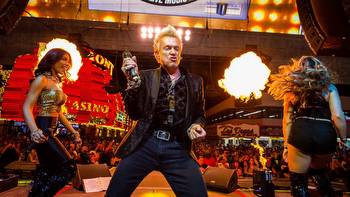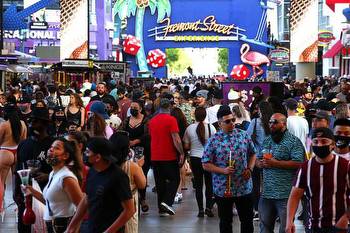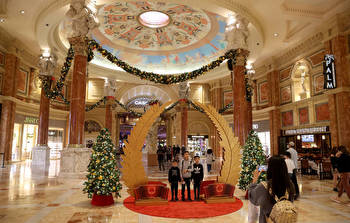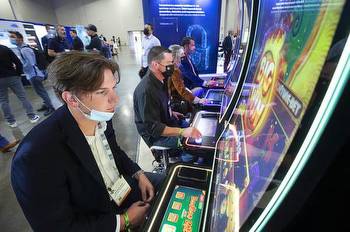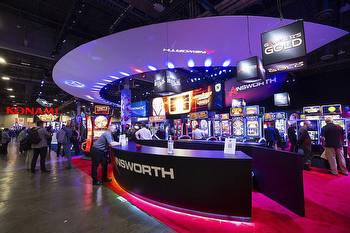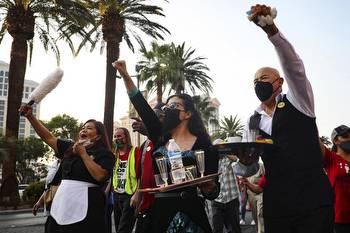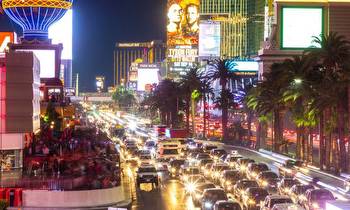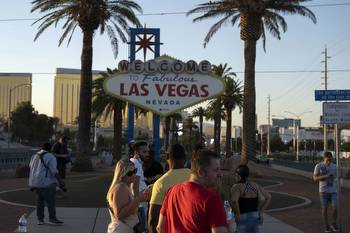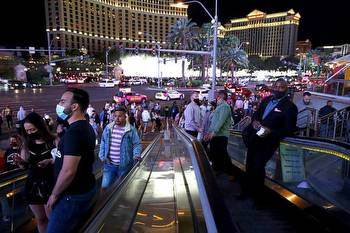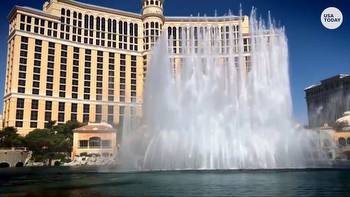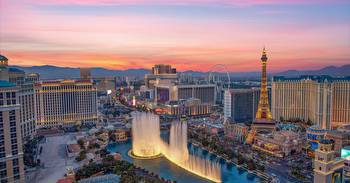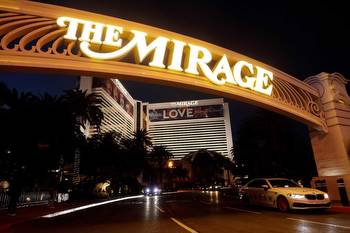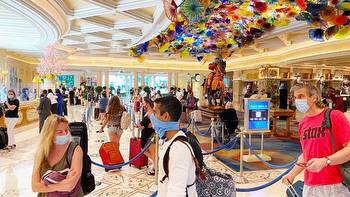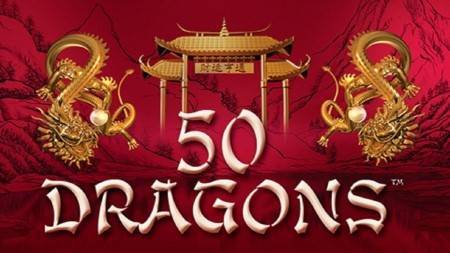How covid-19 changed Las Vegas

I met Jennifer Graff, anexecutive with Columbiana Foods in Ohio,last week in Las Vegas, where she was attending theNational Grocers Association convention. She told me she was thrilled to be at her first in-person convention since the start of the pandemic. “I’m so happy to get back to a little bit of normalcy,” she said.
But the shadow of covid-19 is never far away. Yes, conference attendees must either show proof of vaccination or a recent negative coronavirus test. But what about everyone else? The night prior, she had gone to dinner with friends and was shocked to see so many people mobbing the downtownstreets. “Maybe right now is a little too crowded,” she said.
Vegas is, by many measures, roaring back. Gambling revenue is at record levels.Hotel occupancy rates are approaching 80 percent — not the over 90 percent of pre-pandemic days, but close.This month’s Life Is Beautiful festival, featuring Billie Eilish and Megan Thee Stallion, sold out. The town’s fabled buffets are coming back. There’s partying on the Strip — I saw a crowd dancing in front of Margaritaville one night.
But Vegas also demonstrates just how far we all need to go to make a full recovery from the past 18 months. Some changes are minor: At Harrah’s Piano Bar, the patrons belt out “I Love Rock ’n’ Roll” with masks on, in compliance with Nevada laws requiring patrons to keep mouths and noses covered while indoors unless eating or drinking. And the over-60 crowd, who used to make up about a quarter of all Vegas revelers, is now more hesitant to join the party: The Las Vegas Convention and Visitors Authority found they represented only 15 percent of visitors in March through June.
Most important: Unemployment remains elevated. More than 1 in 4 workers in the Las Vegas metropolitan area are connected to the tourism trade, which took a huge hit from covid shutdowns. A jaw-dropping 35 percent of members of the Culinary Union, which represents many hotel workers, are still out of work.And at 7.7 percent in August, Nevada still has the highest unemployment rate of any state.
Among the unemployed is Precious Briggs, who moved to Vegas from Louisiana three years ago. She quickly found a job serving cocktails on the gambling floor at the Palace Station Hotel and Casino. In addition to her salary, she says she mademore than $1,000 a week in tips. If she doesn’t get rehired by the end of the year, she’ll have to move back to Louisiana, but she doesn’t want to go. “I love the excitement here,” she told me. “I love seeing people happy, and the casino is just — I love that world of just enjoying yourself.”
One who has gotten rehired is Donna Kelly — but not for the same job. Before the pandemic, she was a a full-time room service dispatcher at the 4,000-room Caesars Palace. Now she’s an on-call mini-bar attendant.
There are two major reasons for lagging employment. First, conventions — a Las Vegas staple and economic powerhouse — are returning only in fits and starts, because workers reluctant to return to in-person offices aren’tthrilled to get on airplanes and partyfor their jobs, either. This month the National Association of Broadcasters pulled the plug on its planned October convention, citing concerns over the delta variant. Others go on, but with fewer participants than before.The National Grocers Association event, where I met Graff, had attracted 3,500 people to San Diego in February 2020. Only 2,300 came to Vegas for it last week.
All this reduces the need to fill positions in areas such as banquet services. And since most conventions take place on weekdays, while leisure travelers tend toward long weekends, it also means the hotels need fewer people working midweek. As Amanda Belarmino, an assistant professor of hospitality at University of Nevada at Las Vegas, put it, “Who can travel during the week for pleasure?”
There’s another factor, too. Resorts took advantage of the covid pause to reevaluate their services and offerings to try to cut costs. Automation is in, says Jeremy Aguero, an analyst with Applied Analysis in Las Vegas. Hotels are pushing online check-in and check-out. Some are resolutely not bringing back those lavish buffets, and that’s not out of fear of covid. “We’re going to put the dollars into the place where we make money,” said Red Rock Resorts chief executive Frank Fertitta on an earnings call, explaining why the buffets at the Station Casinos would remain closed.
Nevertheless, Vegas is looking good, uniquely well-positioned to revive and thrive. The casinos I visited were filled up morning, noon and night, and the decline in older tourists is giving the Strip a noticeably younger vibe. International travelers — with their big budgets for leisure spending and gambling — are expected to begin returning in November, when the United States starts admitting foreign visitors, provided they can provide proof of coronavirus vaccination and a recent negative test. People want a fun respite, and that’s what Vegas provides, even in a pandemic. No one should bet on it losing its appeal.








